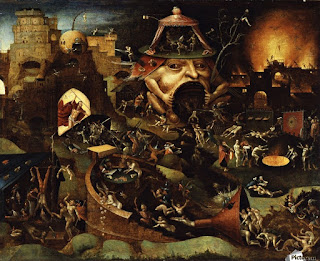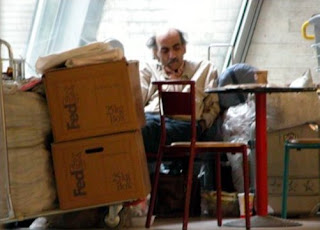When, many years ago, I informed my mother that I had become a vegetarian because I was against animal cruelty, her argument against it consisted of three words: "Jesus ate meat." And that was that. The added issues around the environmental problems caused by the meat industry were not as prominent then, but even if they had been, it would have made little difference. Religion was a fossil, impervious to changing times or human development, though of course, there were countless inconsistencies in my mother's religious attitude, which was, and is, typical of many Christians.

The same can be said of most people who follow a religion founded on a canon they consider to have been revealed by God. An unkind, and limited, assessment of this phenomenon would be that people are inherently hypocritical. I do not believe this to be the case. I think that despite people's allegiance to the "word of God", they are instinctively aware that something may have been distorted through refraction. So, while the New Testament (Paul 1 Corinthians 14: 34-35; 1 Timothy 2:9-15), instructs women to be submissive and subordinate to men, for instance, this is easily dismissed by most Christians, as are the repeated instructions to kill the infidel, in the Quran. The problem is, that some people are more categorical, one could even say, consistent: it is either the word of God in its entirety, or it is not. Can we blame them?
Simon de Myle: Noah's Ark on Mount Ararat
I am not talking here about allegory that is taken literally by simple minds, like Noah's Arc. I am referring to actual instructions or laws. The Abrahamic religions are full of them. Many of these laws are violent. So, can we blame people who take them literally? When the British teenager, Shamima Begum, who had joined Isis when she was 15, was recently asked by a journalist whether she was appalled by the sight of decapitated heads, she said that she was not, as beheading was not contrary to Islam; a naive, but honest answer. This remorseless reply, no doubt influenced the British Government in its decision to strip her of her British citizenship. But who is to blame? Should we condemn her consistency, or should we not, rather blame religious leaders who turn a blind eye to all that is outdated, misleading or abhorrent in the religions they serve? As long as religious institutions tolerate the intolerable, condone their violent histories and ignore the tyranny within their customs and laws, it is they who are to blame, not the Shamima Begums of this world (whose case I will discuss tomorrow).

Hieronymus Bosch's Portrayal of Hell
I will conclude with an example from Catholicism. The Vatican is now holding a long overdue summit on child sexual abuse by its clergy. All well and good. But what about the child abuse that is not in the press, like the terrorising of children with eternal hell, just for masturbating or missing Mass on Sunday? It may sound silly, but the bouncing of a child from heaven to hell, is far from trivial, especially when that child believes and vividly imagines the cruel tortures of an infernal eternity. Religions are full of such abuse and tyranny and it is time to put an end to it once and for all. All religions have much beauty and truth within them: they should have the courage to shed what is not, or what is no longer, acceptable. Only then can they truly be said to be a force for justice and harmony.
























